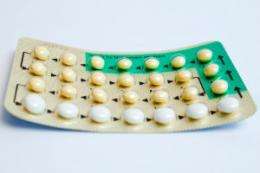Suggested link between The Pill and prostate cancer

AN international study published in BMJ Open has recently suggested the existence of a casual link between the use of the contraceptive pill and the increase incidence of prostate cancer, due to men’s abnormal exposure to low levels of oestrogen in the environment.
Prostate cancer is the most common male malignancy in the Western world and its risk factors other than age, ethnicity and family history still remain ill-defined.
Although the study is ecological (i.e. a study where the unit of analysis is a population rather than an individual) and cannot ascertain the results, researchers have put forward the hypothesis that oestrogen by-products could be passed via urine into the environment in general or drinking water, thus exposing the population at large.
“The last two decades have witnessed growing scientific concerns and public debate over the potential adverse effects that may result from exposure to a group of chemicals [found in the contraceptive pill] that have the potential to alter the normal functioning of the endocrine system in wildlife and humans,” say researchers.
“These chemicals are typically known as endocrine disturbing compounds (EDCs).
“Temporal increases in the incidence of certain cancers (breast, endometrial, thyroid, testis and prostate) in hormonally sensitive tissues in many parts of the industrialised world are often cited as evidence that widespread exposure of the general population to EDCs has had adverse impacts on human health.
“Pills in use today can potentially act as EDCs as they frequently contain high doses of ethinyloestradiol, which is excreted in urine without degradation.”
CEO of the Prostate Cancer Foundation Dr. Anthony Lowe believes the study is interesting but needs to be viewed with caution.
“It is well known that prostate cancer is strongly associated with male hormones and a number of recent studies have suggested a possible association with female hormones.
“However, what the study shows is that countries where there is a high use of oral contraceptives have a high incidence of prostate cancer. It does not demonstrate a causal link.
“It may be that countries where there is a high use of oral contraceptives share other factors e.g. western diet and lifestyle, that are a risk factor for prostate cancer.
“More work and a different type of study are needed to demonstrate the link.”
Although the causes remain unclear, awareness and advocacy of the issue among the general public are strong.
Nearly 141,000 Australians have registered for Movember and raised about $17,500,000 for research this year.
Leader of the Prostate Cancer Support Group Pam Sandoe is pleased with people’s enthusiasm.
“It’s a great fund raiser and we are more than delighted with this great men's health initiative.”














